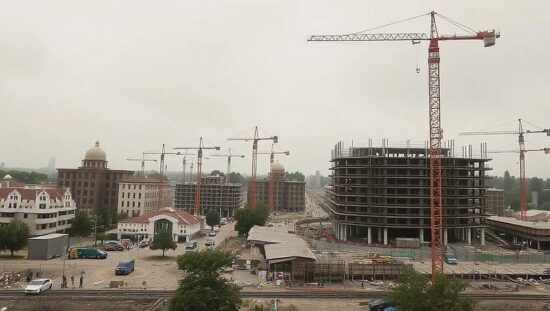The recently passed legislation aimed at accelerating housing construction and ensuring housing security has drawn sharp criticism from within Germany’s Green Party and even encountered reservations from within the governing coalition. Kassem Taher Saleh, the Green Party’s spokesperson for construction policy in the Bundestag, denounced the bill as a missed opportunity to alleviate the distress of millions struggling with soaring housing costs and market instability.
Saleh argued that the so-called “construction turbo” does not address the core issues but instead exacerbates the existing crisis. He posited that the law risks fueling land speculation, endangering valuable natural habitats and agricultural land and placing undue pressure on local municipalities. The Green politician advocated for a shift in construction policy, prioritizing the renovation and modernization of existing buildings over new developments.
This sentiment is echoed, albeit from a different perspective, within the ruling coalition itself. Ina Scharrenbach, the Minister for Construction in North Rhine-Westphalia and a member of the Christian Democratic Union (CDU), described the federal legislation as “insufficient”. She expressed frustration with the perceived slow pace of progress from the federal construction ministry, urging the CDU and SPD to pursue a more unified and decisive approach.
Scharrenbach directly criticized the tendency for one coalition partner to dominate the policy agenda. She suggested that the SPD appears overly focused on expanding government intervention in the rental market, a strategy she believes undermines confidence within the construction industry. The CDU politician’s remarks highlight growing tensions within the governing alliance regarding the best path forward to address Germany’s escalating housing challenges, signaling a potential struggle for control over future construction policy and the broader economic landscape.





